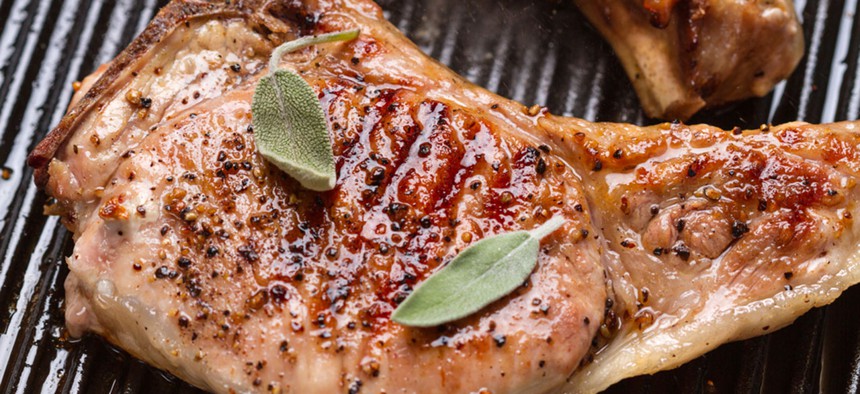
Milarka/Shutterstock.com
Pork is Back in Federal Prisons, After an Iowan's Intervention
The decision came just hours after an intervention from a senator from the nation's largest pork-producing state.
After merely two weeks without any pork on the menu of federal prisons in the United States, one dish with the meat is back, following a high-level intervention on Thursday, Oct. 15.
Just hours after Iowa senator Charles E. Grassley (R) sent the US Bureau of Prisons (BOP) a letter criticizing the decision to pull pork from the daily diet of 206,000 federal prisoners starting Oct.1, the agency reversed its decision, the Washington Post reports, putting pork roast back on the menu.
The BOP did not disclose a reason for reversing the policy. Quartz reached out to the agency and will update this post with any comment.
The BOP had initially ditched pork based on inmate surveys, which indicated “year after year,” as the agency’s spokesperson told Quartz last week, that the meat was the “most disliked item on the menu.”
Grassley’s skeptical letter requests the inmate surveys. In response to the BOP’s additional claim that pork was expensive, the senator also requested budgetary analyses comparing the cost of pork to the costs of beef, chicken and non-meat products.
He writes:
“The United States produces upwards of 92 percent of its own pork. Alternative products may be more likely to be imported. The pork industry is responsible for 547,800 jobs, which creates $22.3 billion in personal incomes and contributes $39 billion to the gross domestic product.
The United States is the world’s largest exporter of pork, and the third largest producer of pork. This unprecedented decision to remove pork from all federal prisons will have consequences on the livelihood of American citizens who work in the pork industry.”
Iowa, Senator Grassley’s home state is the top pork-producing state in the country, according to the trade association National Pork Producer’s Council. Last week, a spokesman for the organization told The Washington Post that they were still formulating a strategy to counter the ban, and “wouldn’t rule out any options to resolve this.”
(Image via Milarka/Shutterstock.com)






